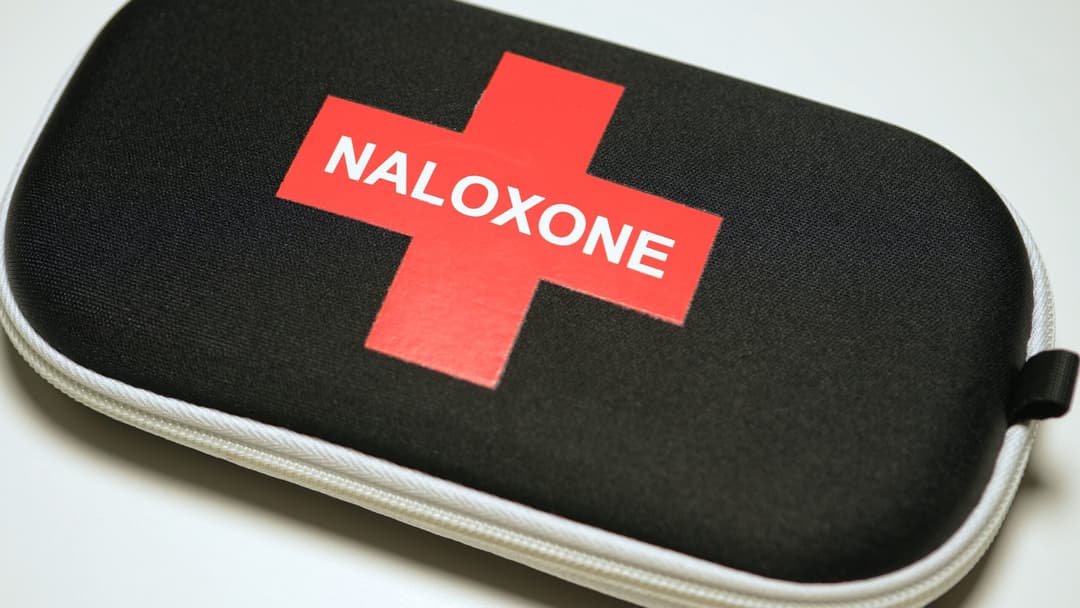Cervical Screening Is For Everyone With A Cervix

Cervical cancer is one of the most preventable and treatable cancers out there. And yet, LGBTIQ+ people with cervixes aren’t getting tested as often as we should.
It’s not hard to see why. Mainstream health ads rarely speak to our communities, and we sometimes hear conflicting advice about whether cervical screening tests are for us.
But the truth is, cervical screening is for everyone with a cervix. And thanks to updates in Australia’s program, it’s now easier than ever. New self-collection options are quick, private, and put you in control.
TD;LR?
Cervical screening is quick, effective, and only needed once every five years. With new self-collection options, it’s easier than ever.
If you’re 25 to 74, have a cervix, and have ever had sexual contact, this test is recommended for you.
Wait, what’s a cervix again?
Great question!
The cervix is a small canal that connects the uterus to the vagina/front hole. If you’d like to see a diagram, .
Why do people with cervixes need cervical screening?
Almost all cervical cancer is caused by HPV (human papillomavirus). It’s the most common sexually transmitted infection (STI) worldwide, and most people will have it at some stage without even knowing. Our immune systems usually get rid of HPV naturally, but sometimes certain types of HPV stick around and cause changes to cervical cells. Left untreated, those changes can lead to cancer.
The cervical screening test checks for types of HPV known to cause cervical cancer, flags if follow-up or monitoring is needed, and helps catch changes early, so they can be treated before cancer has a chance to develop.
Should I do a cervical screening test?
Cervical screening is recommended for anyone who:
- Has a cervix
- Is aged 25 to 74
- Has ever had any kind of sexual contact*
If that’s you, cervical screening is recommended every five years.
Even better, you now have a self-collection option. That means you can usually take the sample yourself, at the clinic, with the same level of accuracy. Plus, the test only takes a few minutes.
The good news? The new self-collection option makes the process easier and puts more control in your hands. Plus, the test only takes a few minutes.
*What do we mean by sexual contact?
HPV is mostly spread through skin-to-skin contact – especially during sex.
That doesn’t just mean heterosexual or penetrative sex.
Sexual contact includes:
- vaginal/front hole and anal penetration
- oral sex
- hand-to-genital contact
- genital to genital contact
- sharing sex toys
Is the cervical screening test the same as a pap smear?
Not quite.
The Pap smear was replaced in Australia back in 2017. The new Cervical Screening Test looks directly for HPV instead of just spotting abnormal cells. It’s more effective, and it only needs to be done every five years instead of two.
Should I do a cervical screening test if I’ve had a hysterectomy?
It depends on the type.
If you’ve had a total hysterectomy (where the cervix was removed), you might not need further screening if other conditions are met.
If you’ve had a subtotal hysterectomy (where the cervix remains), screening every five years is still recommended.
We are all different so always check with your doctor for advice on your situation, but you can find more information here.
What if I’m asexual or not currently sexually active?
Even if you’re not having sex right now, cervical screening can still be important. HPV can lie dormant in the body for years (or even decades) before becoming active again. So if you’ve ever had sexual contact, it’s recommended to screen.
If you’ve never had any kind of sexual contact at all, you may not need to but it’s a good idea to check with your GP.
Should I still do the cervical screening test if I’ve had the HPV vaccine?
Yep! The HPV vaccine (like Gardasil) protects against certain types of HPV, but not all of them. It’s also important to remember that no vaccine is one hundred percent effective. So regular screening is still important, even if you’ve had the jab.
I missed the HPV vaccine at school, what are my options?
If you didn’t get the Gardasil vaccine at school, there’s a free catch-up program available through GPs and health providers up until the age of 26. For anyone older, it’s worth chatting with your doctor about your options. The HPV vaccine is for everyone, and it also helps prevent other cancers, like anal cancer and some head and neck cancers.
I’m a trans man; will I get reminders for cervical screening?
If you have a cervix and are registered as male on your Medicare records, you might not get reminders from the National Cancer Screening Register (NCSR).
Some clinics offer their own reminder systems, or you can register yourself with the National Cancer Screening Register through the Participant Portal on myGov. Once you’ve had your first test, you’ll be added to the register and will get reminders every five years.
Written in partnership with Cancer Council Victoria
The information given on this page is not personalised medical advice and should not be relied upon in that way.
Where to
find support
Looking for someone to talk to?
Access safe (and pre-screened) health from our resource list.




